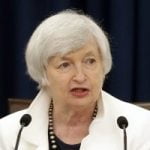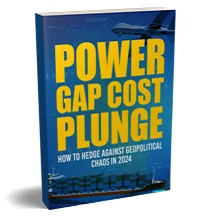
Mundis vult decipi, ergo decipiatur. The world wants to be deceived, so let it be deceived.
President Biden – a conniving politician – is fond of blaming corporate greed for rising prices. This has proved to be a simple and effective answer for why consumer prices are so high.
In one simple statement he shifts the focus away from the government’s failed policies. In doing so, he also points to a boogeyman which the broad populace can direct its anger toward.
Biden’s logic is simple. Prices are increasing; therefore, corporations are greedy. But if corporations are greedy because prices are rising, isn’t the government also greedy because prices are rising?
Specifically, if corporations are increasing prices because they are greedy, does that mean the U.S. Postal Service (USPS) is also greedy? Continue reading








